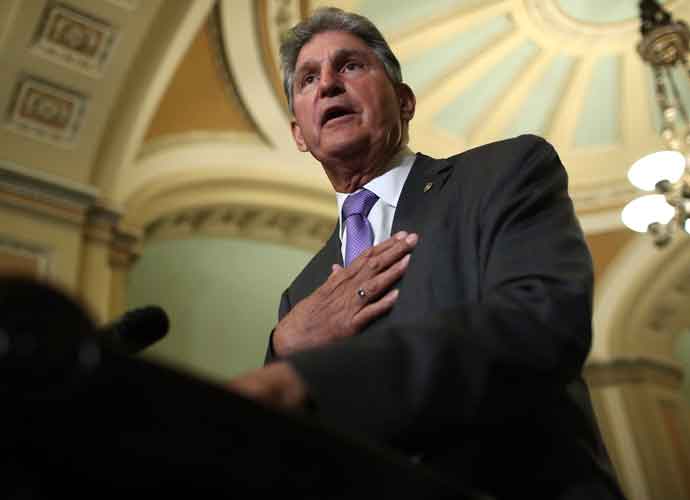Sen. Joe Manchin Leaves Democratic Party To Become An Independent
On Friday, Sen. Joe Manchin (D-West Virginia), a conservative Democrat in the Senate since 2010, announced he had switched his party registration to independent. He had previously announced that he would not seek re-election.
His party switch marks the final culmination of a prolonged separation from the Democratic Party. For years, Manchin has threatened to leave, citing the party’s left-forward shift and increasing polarization.
“Let’s work together to fix America. Don’t hate the other side,” wrote Manchin on X. “There’s only one side – the American side – and we have to work together to save our country… My commitment to do anything to bring our country together has led me to register as an independent with no party affiliation.”
Sen. Chuck Schumer (D-New York), the majority leader, has been encouraging Manchin to leave the Democratic Party and run for re-election as an independent ever since Manchin announced he wasn’t planning to run again.
Subscribe to our free weekly newsletter!
A week of political news in your in-box.
We find the news you need to know, so you don't have to.
However, Manchin has stated that he will not run for reelection to the Senate or run for governor, roles he previously held for two terms, despite persistent rumors on Capitol Hill suggesting he might reconsider.
If Manchin decides to run for reelection, he will face long-term rival Jim Justice, a Democrat-turned-Republican and second-term governor of West Virginia.
Justice’s decision to run for the Senate significantly influenced Manchin’s decision not to seek reelection. However, Manchin’s departure nearly guarantees that Democrats will lose the seat in November, jeopardizing their already tenuous one-seat majority in the Senate.
In recent years, Manchin has often lamented that the Democratic Party no longer accommodates centrists like him, famously telling colleagues, “This place sucks.” However, he has remained firmly opposed to the Republican Party, criticizing former President Donald Trump and his role in polarizing American politics.
“Since becoming a United States senator in 2010, I have seen both the Democrat and Republican parties leave West Virginia and our country behind for partisan extremism while jeopardizing our democracy,” Manchin said in a statement.
“Today our national politics are broken and neither party is willing to compromise to find common ground,” he added, “To stay true to myself and remain committed to put country before party, I have decided to…continue to fight for America’s sensible majority.”
As a Democrat from a deeply red state, Manchin has consistently garnered attention on Capitol Hill throughout his Senate tenure.
Though he has often frustrated fellow Democrats by opposing progressive legislation and blocking key priorities in a closely divided Senate, Manchin is also credited with brokering deals that resulted in some of the Biden administration’s most significant achievements, including the largest investment in clean energy in U.S. history with the Inflation Reduction Act (IRA) and CHIPs bill.
By switching party affiliation, Manchin will join three other independent senators who caucus with the Democrats, including Sen. Krysten Sinema (I-Arizona), Sen. Bernie Sanders (I-Vermont) and Sen. Angus King (I-Maine).
Get the most-revealing celebrity conversations with the uInterview podcast!






Leave a comment